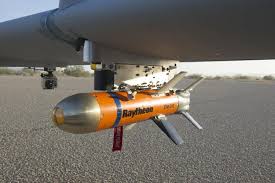Raytheon’s False Claims Act Settlement (Part IV of IV)

The Justice Department’s global settlement included a significant False Claims Act resolution, resulting in a second deferred prosecution agreement (“DPA”) for a three-year term. A criminal information was filed in the District of Massachusetts charging Raytheon with two counts of major fraud against the United States.. Raytheon agreed to pay $147 million to resolve the criminal allegations.
DOJ’s settlement includes a civil resolution of charges that Raytheon provided untruthful certified cost or pricing data when negotiating prices with the DOD for numerous government contracts and double billed DOD on a weapons maintenance contract. Raytheon has agreed to pay $428 million, the second largest government procurement fraud recovery under the False Claims Act, to resolve the civil allegations. Under both resolutions, Raytheon will pay a total of $574.7 million. Under the terms of the DPA, Raytheon will pay $146.7 million in a criminal monetary penalty, $111.2 million in victim compensation and retain an independent compliance monitor for three years.

The civil settlement includes the resolution of a lawsuit filed under the qui tam or whistleblower provision of the False Claims Act, which permits private parties to file suit on behalf of the United States for false claims and share in a portion of the government’s recovery. The qui tam lawsuit was filed by Karen Atesoglu, a former Raytheon employee, and is captioned United States ex rel. Atesoglu v. Raytheon Technologies Corporation, 21-CV-10690-PBS (DMA). Ms. Atesoglu will receive $4.2 million as her share of the settlement.
Raytheon engaged in criminal schemes to defraud the U.S. government in connection with contracts for critical military systems. Government contractors have an obligation to supply transparent and accurate cost and pricing data when they seek an award of a sole source contract. Raytheon provided inflated pricing and cost information. Raytheon used fraud and deceit to gouge American taxpayers to boost its company’s bottom line.

According to Raytheon’s admissions, employees provided false and misleading information to the DOD during contract negotiations concerning two contracts with the United States for the benefit of a foreign partner, one to purchase PATRIOT missile systems and the other to operate and maintain a radar station. In both instances, Raytheon employees provided false and deceptive information to DOD in order to mislead DOD into awarding the two contracts at inflated prices. These schemes to defraud caused the DOD to pay Raytheon $111.2 million more than Raytheon should have been paid on the contracts.
Raytheon cooperated with the investigation and engaged in remedial measures, including, terminating employees who remained at the company that were responsible for the misconduct; establishing a broad defective pricing awareness campaign; developing and implementing policies, procedures and controls relating to defective pricing compliance; and engaging additional resources with appropriate expertise to evaluate and test the new policies, procedures and controls relating to defective pricing compliance.
Raytheon has also agreed to retain an independent compliance monitor for a period of three years, and Raytheon and RTX have agreed to continue to implement a compliance and ethics program at Raytheon designed to prevent and detect fraudulent conduct throughout its operations.

Under the False Claims Act settlement Raytheon will pay $428 million for knowingly failing to provide truthful certified cost and pricing data during negotiations on numerous government contracts between 2009 and 2020, in violation of the Truth in Negotiations Act (TINA). Congress enacted TINA in 1962 to help level the playing field in sole source contracts, where there is no price competition, by making sure that government negotiators have access to the cost or pricing data that the offeror used when developing its proposal. As part of the settlement, Raytheon admitted that it failed to disclose cost or pricing data, as required by TINA, regarding its labor and material costs to supply weapons systems to DOD, and that it failed to disclose cost or pricing data, as required by TINA, regarding its labor costs to staff a radar station. As a result, Raytheon overcharged the United States and received profits in excess of the negotiated profit rates. Raytheon also admitted it billed the same costs twice on a maintenance contract for the DOD.















